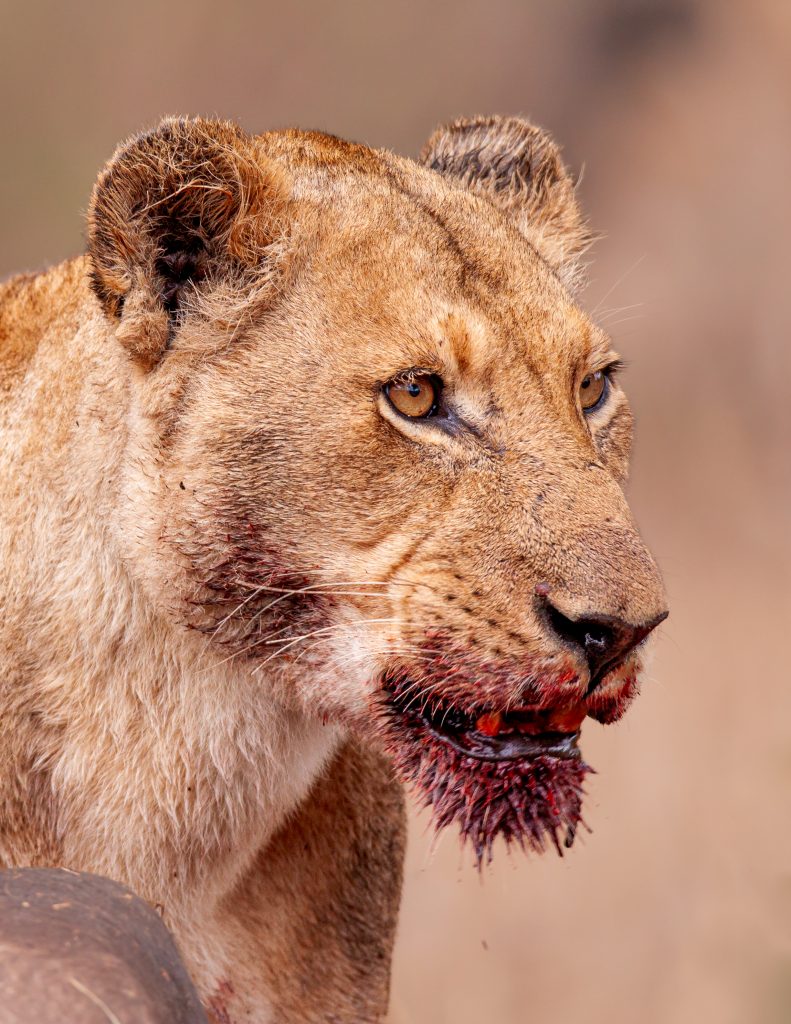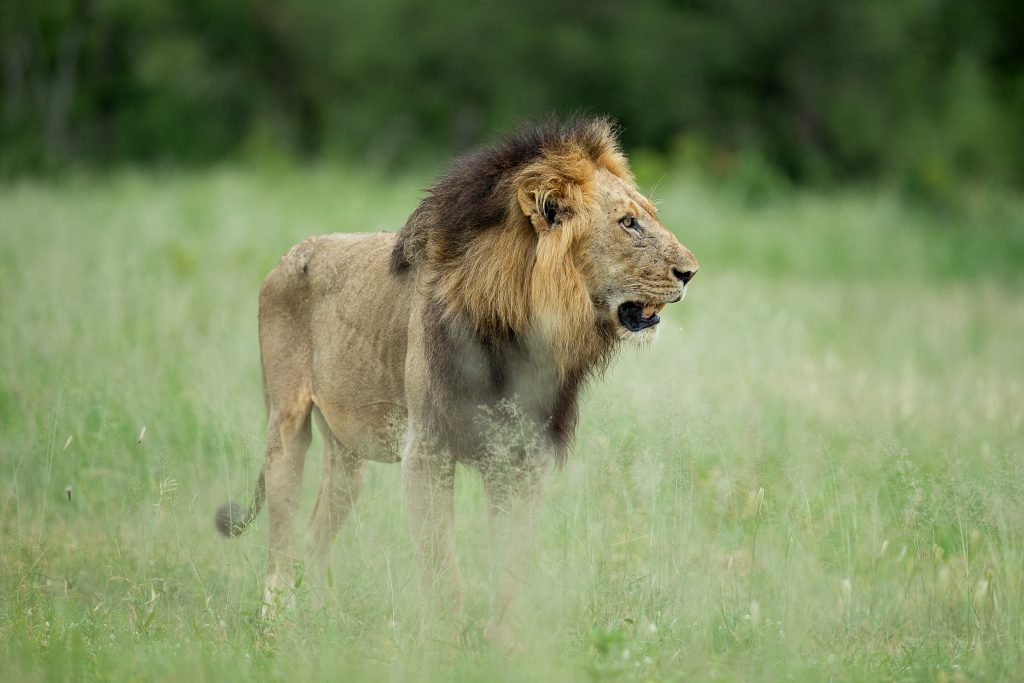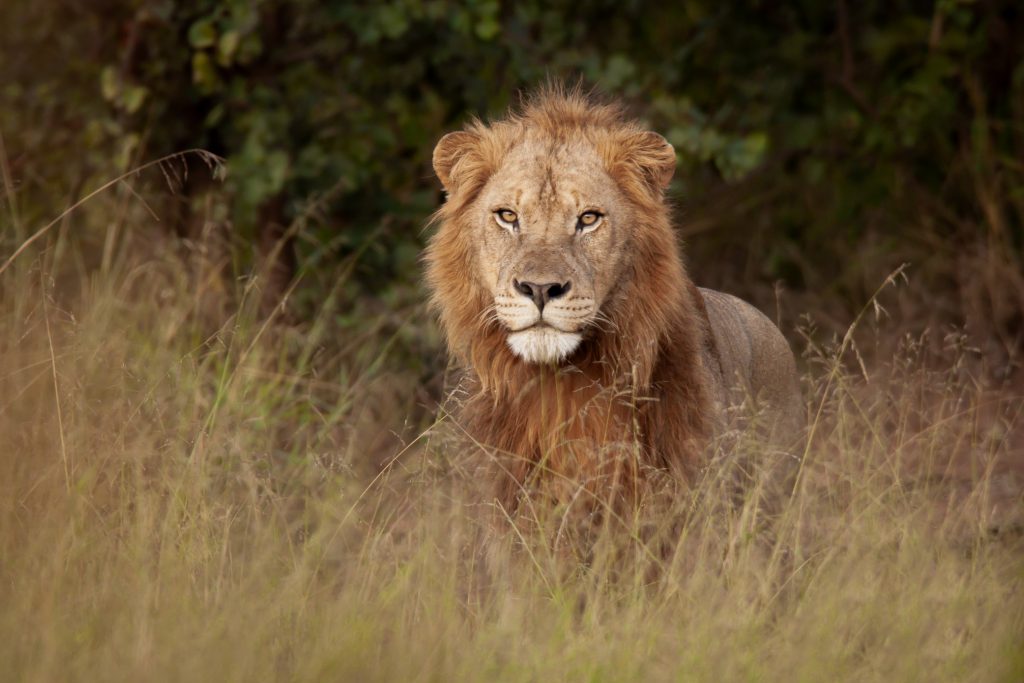Images John Smith

In the realm of majestic creatures, few capture the imagination quite like the lion. With its regal presence and awe-inspiring roar, the lion has long been revered as the king of the animal kingdom. It is only fitting, then, that we dedicate a day to celebrate and raise awareness about these magnificent creatures. World Lion Day, observed each year on August 10th, provides us with an opportunity to reflect on the significance of lions, their conservation, and the efforts being made to protect their natural habitat.
The origins of World Lion Day can be traced back to a growing concern over the declining lion population worldwide. The day was established in 2013 by a coalition of organisations, including wildlife charities and conservation groups, with the aim of raising awareness about the plight of lions and promoting their conservation. Since then, it has gained global recognition, becoming an important date on the wildlife conservation calendar.
Now, let us turn our gaze towards Zimbabwe, a country renowned for its stunning landscapes and rich biodiversity. Zimbabwe is home to a significant population of lions, making it a crucial hub for lion conservation efforts. The country’s diverse ecosystems, ranging from the vast grasslands of Hwange National Park to the rugged beauty of Mana Pools National Park, provide ideal habitats for these magnificent predators.
In Zimbabwe, various initiatives are underway to protect lions and their habitats. One such initiative is the Bhejane Trust, a non-profit organisation dedicated to conserving Zimbabwe’s wildlife. Operating primarily in the Hwange region, the Bhejane Trust focuses on anti-poaching efforts, community engagement, and research activities to ensure the long-term survival of lions and other endangered species.
Community involvement is a vital component of successful conservation efforts. In Zimbabwe, organisations such as the African Lion and Environmental Research Trust (ALERT) work closely with local communities to foster a sense of ownership and responsibility towards lion conservation. Through educational programs and community-based initiatives, ALERT aims to mitigate human-lion conflicts and promote sustainable coexistence.
Another remarkable project in Zimbabwe is the Lion Guardians initiative. This innovative program recruits local community members to act as conservation ambassadors, working to mitigate conflicts between humans and lions. By employing traditional knowledge and modern technology, the Lion Guardians are making significant strides in reducing lion poaching and protecting lion populations.

Fascinating Lion Facts
- Did you know that lions are the only social big cats, living in groups called prides? These prides are usually composed of related females, their offspring, and a few dominant males. Cooperation within the pride enables lions to tackle large prey and defend their territories effectively.
- Lions are also known for their impressive hunting skills. While the females do most of the hunting, relying on teamwork and strategic planning, the male lions play a crucial role in defending the territory from rival males. Their iconic roars can be heard up to five miles away, serving as a vocal declaration of their presence and a warning to intruders.
- One cannot discuss lions without mentioning their iconic manes. The mane serves several purposes, including providing protection during fights, attracting mates, and signaling dominance. Interestingly, the color and size of a lion’s mane can vary significantly, with darker and fuller manes often associated with higher testosterone levels and better reproductive success.
Plight Of The Lion
Unfortunately, despite their cultural significance and ecological importance, lions face numerous threats to their survival. Habitat loss, human-wildlife conflict, poaching, and the illegal wildlife trade all contribute to the decline in lion populations across their range. The loss of natural habitats due to human activities, such as agriculture and urbanisation, fragments lion populations and restricts their movement, leading to increased competition for resources and higher chances of conflicts with humans.
Poaching and the illegal wildlife trade pose another grave threat to lions. Lion bones, skin, and other body parts are highly sought after in some parts of the world for their perceived medicinal and ornamental value. The demand for these products drives the illegal hunting and trafficking of lions, further exacerbating the decline in their numbers.
However, despite the challenges, there is hope on the horizon. The efforts being made in Zimbabwe and around the world to conserve lions and their habitats are making a difference. Conservation organizations, researchers, and local communities are working together to implement strategies that address the root causes of lion population decline and promote sustainable coexistence.
One such strategy is the establishment of protected areas and national parks, where lions can roam freely and thrive. These protected areas provide a safe haven for lions and other wildlife, ensuring their long-term survival. In Zimbabwe, national parks like Hwange and Mana Pools play a vital role in safeguarding lion populations and preserving their natural habitats.
Conservationists also employ advanced technologies to monitor and study lion populations. GPS tracking collars, camera traps, and satellite imagery help researchers gather valuable data on lion behaviour, movement patterns, and population dynamics. This information is crucial for informed decision-making and the development of effective conservation strategies.
Education and awareness initiatives play a crucial role in changing attitudes and behaviors towards lions and wildlife conservation. By engaging local communities, particularly those living in close proximity to lion habitats, conservation organizations can foster a sense of stewardship and empower communities to become active participants in lion conservation efforts.
Tourism also plays a significant role in lion conservation. Responsible wildlife tourism, when properly managed, can generate revenue that contributes to conservation efforts and provides economic incentives for local communities to protect lions and their habitats. Visitors have the opportunity to experience the beauty of lions in their natural environment, while their presence helps support conservation initiatives.

